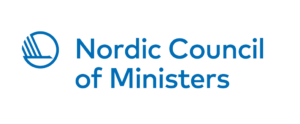About the programme
The EnCHiL Nordic Master Programme
High latitude ecosystems and societies are changing at an accelerated rate. This is due to climate change, more tourism, increasing trans-polar transport and other economic activities. Therefore there is an increasing global need for experts having multidisciplinary training in environmental sciences to help the regions to work towards sustainable development within the framework of United Nations Sustainable Development Goals.
The Nordic Master in Environmental Changes at Higher Latitudes (EnCHiL) provides high quality two-year science education at the highest international level and a practical experience within the Arctic region.
The EnCHiL Nordic Master programme offers international and Nordic students unique hands-on experience while addressing these important issues in a multidisciplinary environment and gives them opportunities to work with relevant Arctic topics in the wide network of the EnCHiL partners.
Who is EnCHiL for?
If you have a bachelor degree with some background in natural sciences and technology (see specific degree requirements), and you are interested in understanding and developing skills for addressing the changes that are happening at higher latitudes, then EnCHiL is for you. You will learn with a cohort of international fellow students and will gain first-hand experience in relevant issues at higher latitudes.
Structure of the EnCHiL programme
The EnCHiL Nordic Master programme is a two-year Master’s degree programme (120 ECTS) offered jointly by the EnCHiL consortium. EnCHiL students will take courses and develop a 30 ECTS thesis. The programme has a compulsory mobility scheme, where all students will at least spend one semester at another EnCHiL university. You can find more information about the structure of the programme here
Learning outcomes of EnCHiL
Knowledge — when graduating from the EnCHiL programme the new Nordic master will:
- be able to combine high-level process-based research on environmental issues with a deep understanding of climate, environment and society of high-latitude regions.
- have attained first-hand, personal and deep knowledge on the ongoing environmental changes taking place at higher latitudes, and their effects on both nature and society.
- have a deep multidisciplinary knowledge on the past, ongoing and predicted environmental changes at higher latitudes (Antarctic, Arctic and sub-Arctic areas) and the underlying processes responsible for those changes.
- be able to define and explain some basic principles of measurement techniques used for environmental research and monitoring.
Skills — when graduating from the EnCHiL programme the new Nordic master will:
- collect, organise and evaluate data in an integrated way and basic knowledge in using analytical computer programs and/or programming languages.
- be able to plan, execute, analyse and communicate multi-disciplinary research in an effective way.
- master the use of process-based scientific data in environmental research at high latitudes.
- recognize the importance of involving the human dimension in all environmental research and policy and have practiced how to include such social science aspects into their work.
- be able to communicate, in different forms, knowledge in a structured and logical way.
General competences — when graduating from the EnCHiL programme the new Nordic master will:
- be able to discuss and evaluate methods and interpretations of environmental research.
- be able to evaluate precautions and actions of the community for management of environmental issues in the arctic.
- have gained awareness and appreciation of current research issues, knowledge base, and methodologies that analyse and concern high-latitude environments.
- have a strong multidisciplinary skill-set that will be attractive for international and Nordic research, which will enable the Nordic master to continue a research-based career as a doctoral student.
- have attained a very strong “Nordic/Baltic contact network” that will also be helpful for further career development outside academia.
Academic Strengths and Research Exellence
The EnCHiL consortium is formed by three main partners and four associated partners. The academic strengths and research excellence of the main partners (Agricultural University of Iceland, University of Helsinki and Lund University) provide a very strong technical and scientific foundation, as well as a unique Arctic experience that will deepen their understanding and knowledge about high latitudes, as well……..
Home
About
Programme structure
Partners
Application
Career prospects
Agricultural Univ of Iceland
Lund University
University of Helsinki
The Programme is funded by the Nordic Council of Ministers

